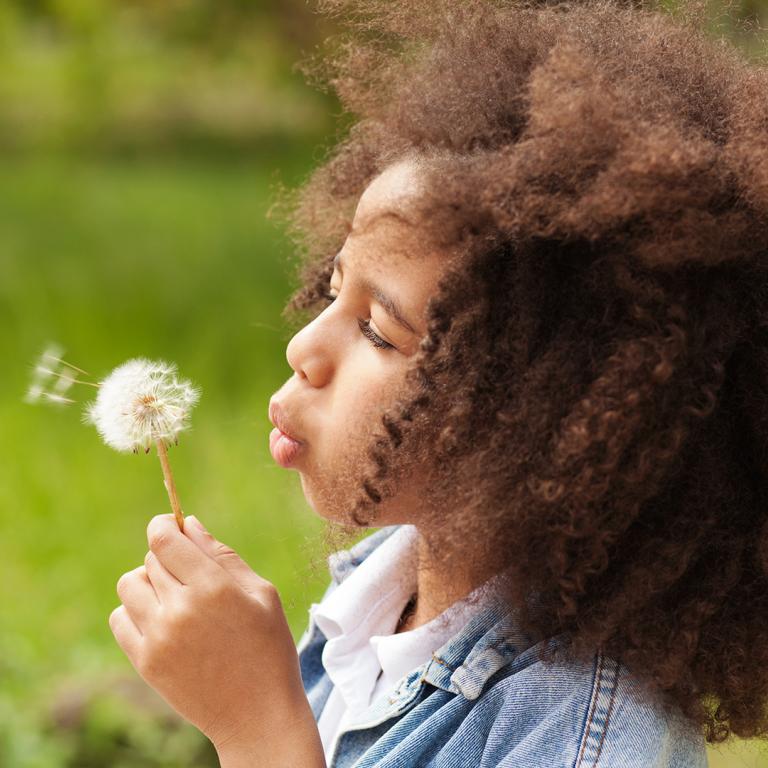

Dr. Ian Smith's Tips For Tackling Pollen Season

Q&A with Organizational Pro Peter Walsh + Dermatologist Shares A…

Actor Hank Azaria + Freezer Meals + Artichokes 2 Ways with Rach

See Inside Barbara Corcoran's Stunning NY Apartment + It's Steak…

How to Make Chicken and Lobster Piccata | Richard Blais

Donnie Wahlberg Spills Details About NKOTB's First Ever Conventi…

Donnie Wahlberg + Jenny McCarthy Say Rach Is Such a "Joy" + Look…

The Best Moments From 17 Seasons of the Show Will Make You Laugh…

How to Make Crabby Carbonara | Rachael Ray

Rach Chats "Firsts" In Flashback From Our First Episode Ever In …

How to Make Apple-Cider Braised Pork Chop Sandwiches with Onion …

Rach's Chef Pals Say Goodbye to Show in Surprise Video Message

How to Make Sesame Cookies | Buddy Valastro

How to Make Tortilla with Potatoes, Piquillo Peppers and Mancheg…

How to Make Shrimp Burgers | Jacques Pepin

How to Make Spanakopipasta | Rachael Ray

Andrew McCarthy Chokes Up Discussing Emotional Trip to Spain wit…

Celebrity Guests Send Farewell Messages After 17 Seasons of the …

Celebrity Guests Send Farewell Messages After 17 Seasons of the …

Andrew McCarthy Teases Upcoming "Brat Pack" Reunion Special

Michelle Obama Toasts Rach's 17 Years on the Air With a Heartfel…
Warmer weather means sunshine, flowers and, unfortunately, for many people ... ALLERGIES. So when exactly is pollen season, how long will it last and what can you do about it? A doctor (one of our favorites!) weighs in.
"Allergy season has lengthened, believe it or not, because climate change has made it warmer," Dr. Ian Smith says. "So the pollinating season is longer."
In fact, Dr. Ian says pollen season lasts from February to June, and here's the breakdown of when each kind tends to rear its ugly head:
February and March: Tree pollen
April and May: Flower pollen
June: Grass pollen
Not to mention that in June and August, mold and spores peak, the doc says.
So, what are some things you can do to make it through the season?
WHEN IS POLLEN AT ITS PEAK DURING THE DAY?
"Pollen is highest in midday," Dr. Ian explains. "So be careful going out in midday."
If you do go out, wear a wide-brimmed hat and glasses to prevent the allergens from getting into your system, he suggests. And when you enter your home, make sure you take your clothes and shoes off near the door before washing them to remove the pollen.
If you're staying in, keep the windows closed during this peak period, which is from midday to about 3 p.m.
Oh, and don't forget to check with your local meteorologist for the pollen report.
HOW DO I PREVENT POLLEN ALLERGY FLARE-UPS?
Now, in terms of products you can use to help curb your flare-ups, for starters, Dr. Ian says if you're looking for a new vacuum, look for one with a HEPA filter.
"[HEPA] means high efficiency particulate air," he explains. (A.K.A. The filter catches the pollen.)
For extra precaution, wear a surgical mask while vacuuming, the doc advises.
In terms of mold and spores, Dr. Ian says, "Moisture is very dangerous, because it becomes a kind of collecting pool for these molds and fungus."
So, make sure your pipes are tight and not leaking and keep a dehumidifier in areas with extra moisture. (And make sure to clean it regularly!) Plus, place a small fan in the same space as the dehumidifier to keep the air circulating.
As for medications, "Most people are going to use or need over-the-counter medications or prescriptions," Dr. Ian notes. "However, there are some things you can do before you use the medications, and one of my favorites is using a nasal saline spray."
With that said, if you believe you need an OTC medication, ask your doctor about loratadine (a.k.a. Claritin) or fexofenadine (a.k.a. Allegra). Another option is diphenhydramine (a.k.a. Benadryl), but Dr. Ian says to be careful with diphenhydramine because it can make you drowsy.
If any of your OTC meds have a "D" on the label, that means it's a decongestant. BUT Dr. Ian says that's another product to be careful with.
"If you take it too much, your body becomes acclimated to it, and so it doesn't become effective anymore."
As always, talk to your doctor about any existing or developing allergies before deciding on prevention and treatment.





